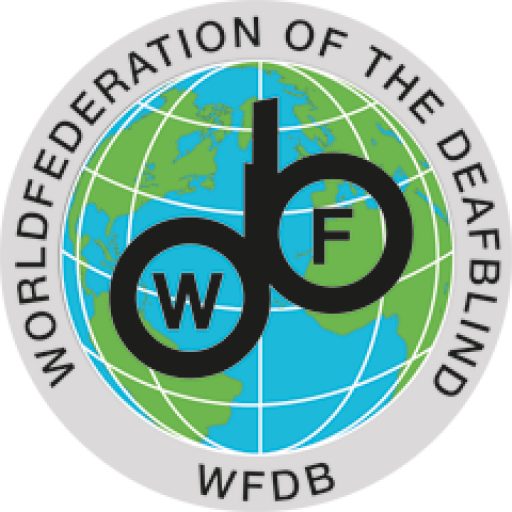Our WFDB delegation comprised of President Sanja Tarczay, two Deafblind interpreters/interpreter-guides and Program Advisor Lucia D’Arino were present from 13-15 of June at the Conference of States Parties to the Convention (COSP16) to the Rights of Persons with Disabilities (CRPD) at the United Nations Headquarters in New York.
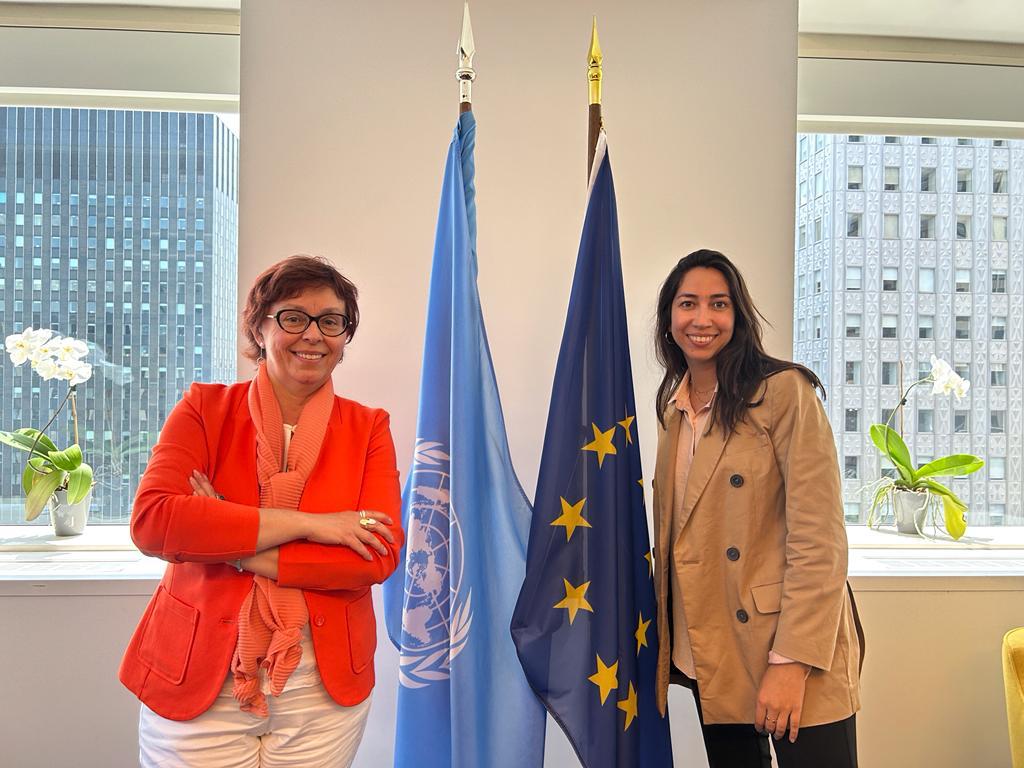
Day 1
WFDB delegation attended a side event organized by Permanent Mission of Ecuador to the UN on Digital Accessibility at the Intersection of the CRPD and the Convention on the Rights of Older Persons as well as one on Ending forced sterilization of persons with disabilities and promoting sexual and reproductive rights, organized by UN Economic and Social Commission for Western Asia (ESCWA) and the European Disability Forum (EDF), amongst others.
Sanja Tarczay also had the opportunity to meet with Victoria Lee, Rights Advocacy Director of the Disability Rights Fund (DRF) and Disability Rights Advocacy Fund to strengthen the relationship between both organisations.
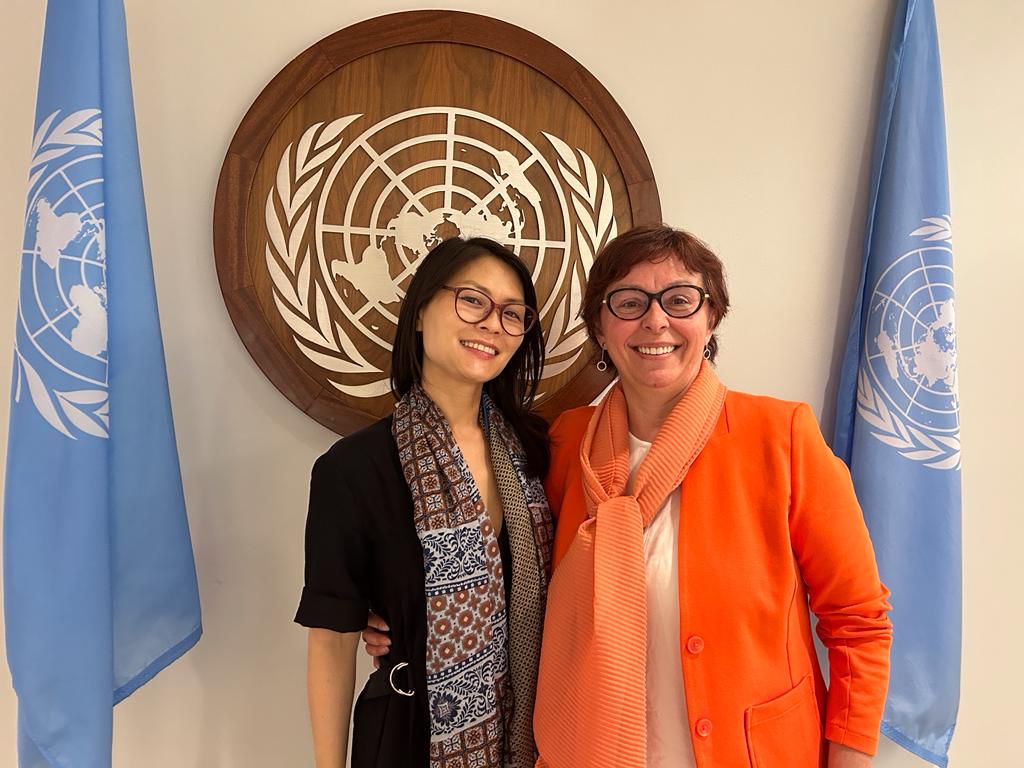
Moreover, WFDB representatives took part in a consultation meeting with UN Human Rights Office secretariat on elaborating the Theory of Change (ToC) for the “Community 2030” initiative, to ensure that the perspective of persons with deafblindness is taken into consideration when discussing the “care agenda”.
In the afternoon, a meeting with EDF, IDA and WFDB representatives was held with different Members of the European Parliament (MEPs) at the Offices of the EU Delegation to the UN, where the future of persons with deafblindness in the Europe was discussed, as well as the main barriers faced by this particular and unique disability group.
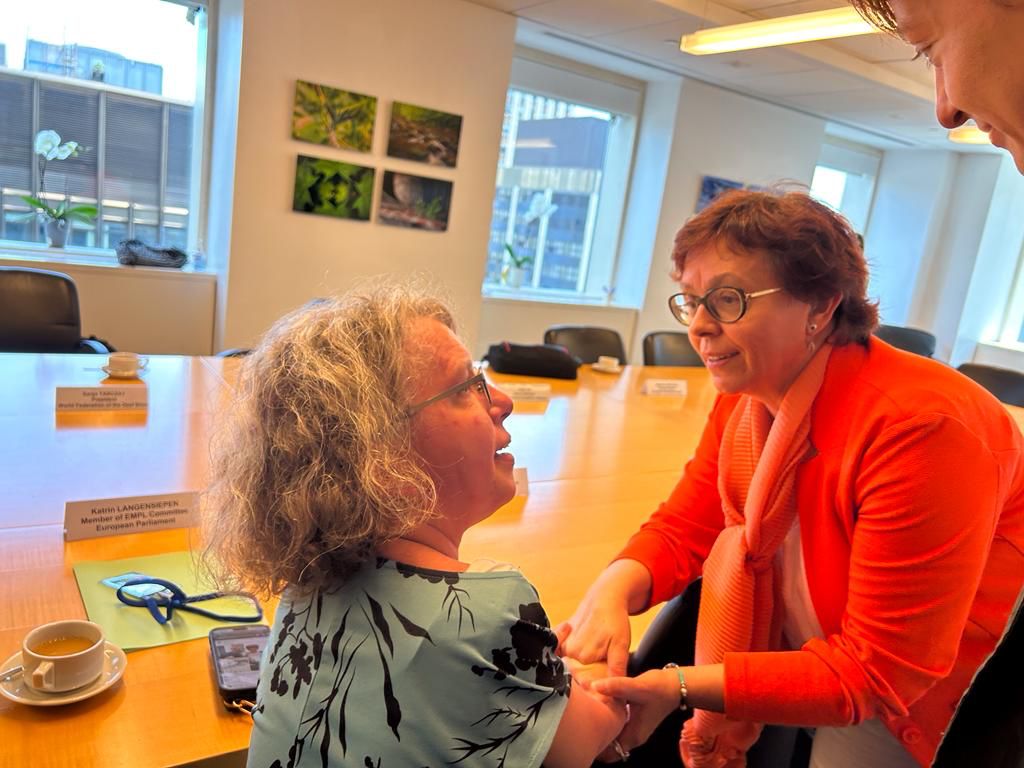
WFDB, together with IDA and EDF representatives, met with Helena Dali (EU Commissioner for Equality) where the importance of adopting and intersectional approach was stressed.
Finally, Sanja Tarczay intervened during the General Debate and made a statement in line with the conference sub-theme 3: reaching the under-represented groups of persons with disabilities. “Deafblind people are invisible, as double impairment puts them on margins of all disability groups. We need to bring these people out of underrepresented groups and invest in quality interpreters, guaranteeing their meaningful participation.”, she stated. A big round of applause from the audience followed.
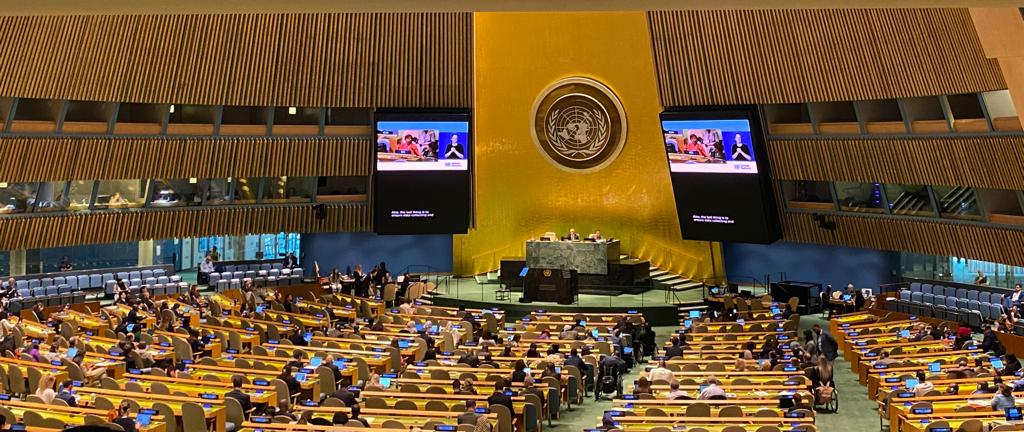
Day 2
WFDB held a webinar (and CoSP16 side event) on the topic “Presenting WFDB’s 2nd Global Report: Good Practices and Recommendations for the Inclusion of Persons with Deafblindness“. The International Disability Alliance (IDA) co-sponsored the event. Find here more information on this side event.
Introductory remarks were given by Sanja Tarczay and Mr. Cato Lie, IDA Board member. Mr. Christopher Woodfill, WFDB Executive Council Member presented WFDB’s 2nd Global Report: Good Practices and Recommendations for the Inclusion of Persons with Deafblindness. Lucia D’Arino presented the SHAPES Project and the inclusion of older persons with deafblindness. Towards the end, the floor was opened for questions and remarks.
Later, WFDB representatives met with Ms. Martyna Balciunaite from the Human Rights and Disability Unit at OHCHR’s to discuss the SDG Summit 2023 and the political declaration. WFDB showed its interest in being involved in future activities with the UN Human Rights Office.
President Sanja Tarczay, together with IDA representatives, met with a representative from the Permanent Represention of Italy to the United Nations, where the situation of persons with deafblindness in Italy was discussed.
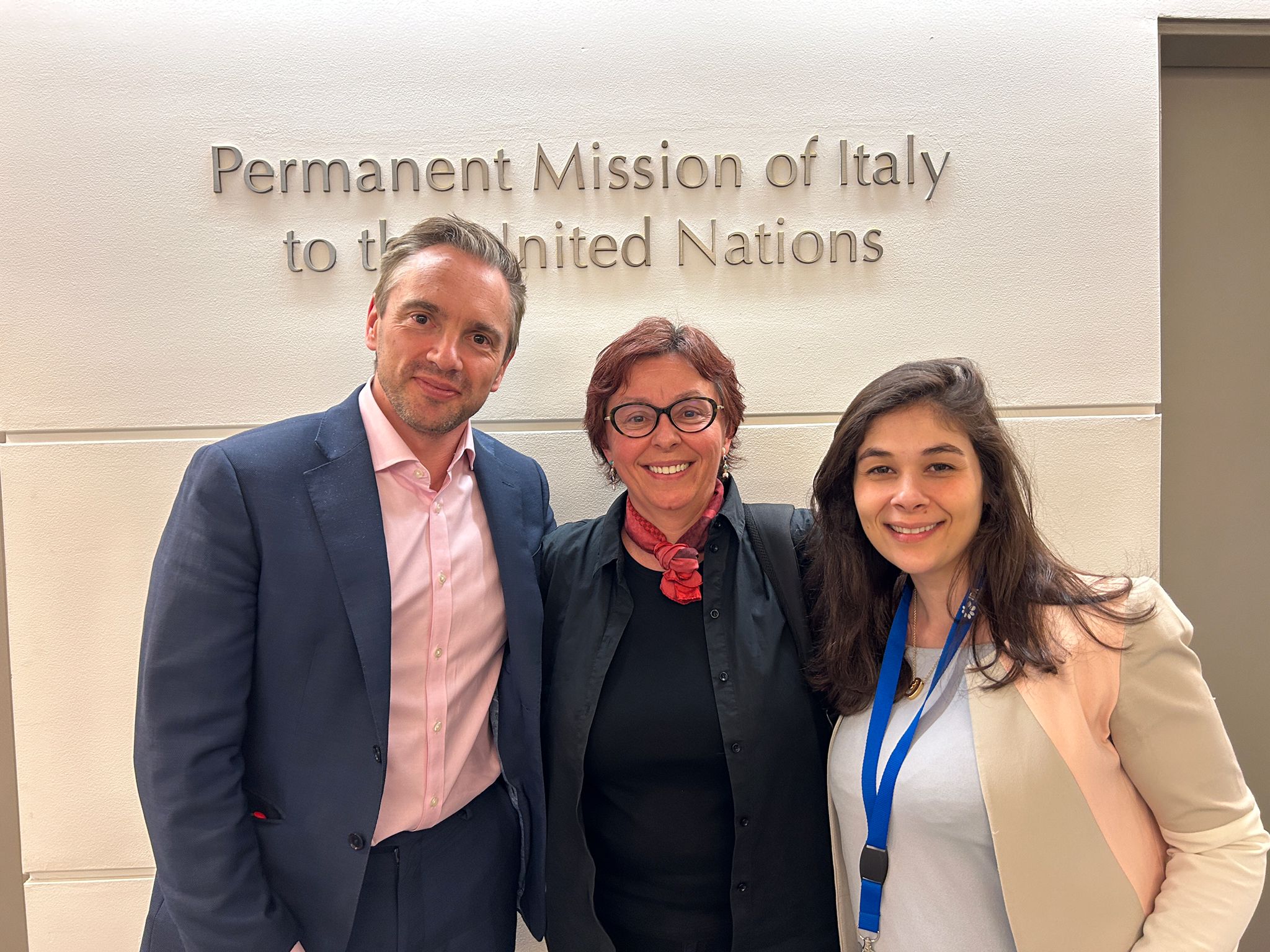
Moreover, during Roundtable 2 discussions titled “Digital accessibility for persons with disabilities”, Jean-Marie Furaha, a person with deafblindness from Rwanda, supported by the Disability Rights Fund, intervened to present the challenges that persons with deafbliness experience worldwide and stated that “digital technology enables deafblind persons to access and enjoy their rights, enhances social inclusion, improves independence and participation in community life.”
Finally, WFDB representatives attended a reception organised by the company Microsoft in their office, where the Disability Data Hub was presented, in partnership with The World Bank.
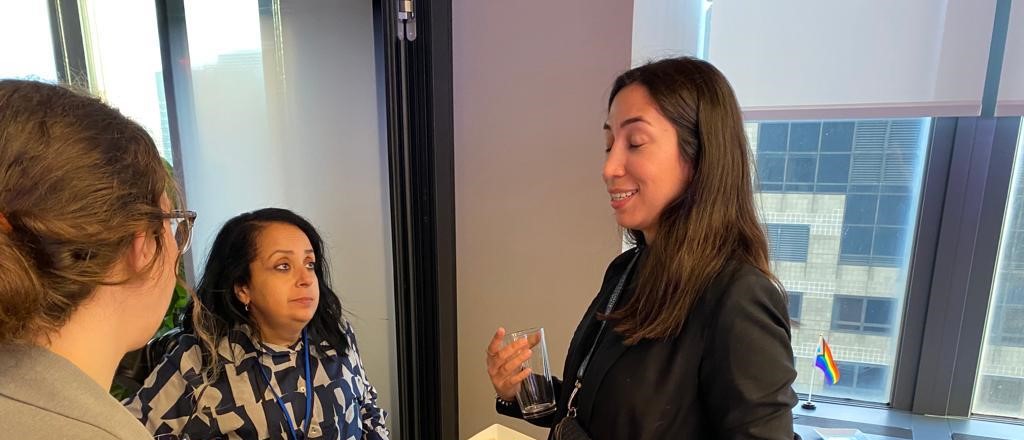
Day 3
WFDB delegates attended Roundtable 3 discussions titled “Reaching the under-represented groups of persons with disabilities”, the International Council for Education of People with Visual Impairment (ICEVI) representative named Frances Gentle, refered to our 1st and 2nd Global Report, during their intervention, highlighting that every children with deafblindness has the right to education, as per the CRPD.
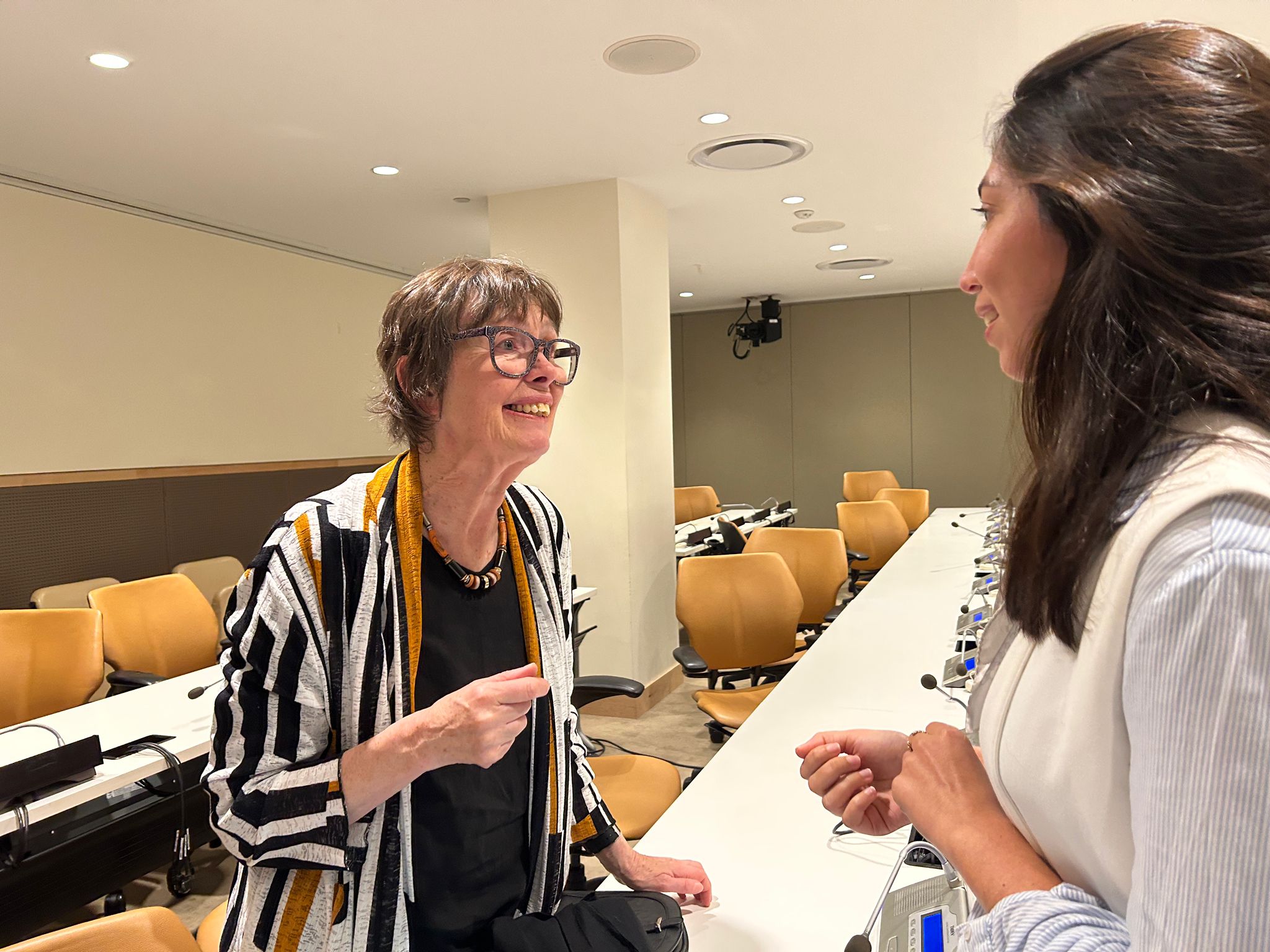
Later in the day, President Sanja Tarczay was a panelist at a side event titled “From Beijing to the CRPD and beyond: How women with disabilities are shining a light on intersectional gender rights”, organised by IDA, UN Women and Women Enabled International, amongst others. Sanja emphasised that there is a huge gap in the literature and data collection regarding deafblind women, since many countries still do not recognisedeafblindness as a unique disability. Also, Sanja spoke about violation, abuse and exploitation of women with deafblindness. She reminded the audience that our 2nd Global Report includes recommendations on how to ensure the inclusion of persons with deafblindness, including women.
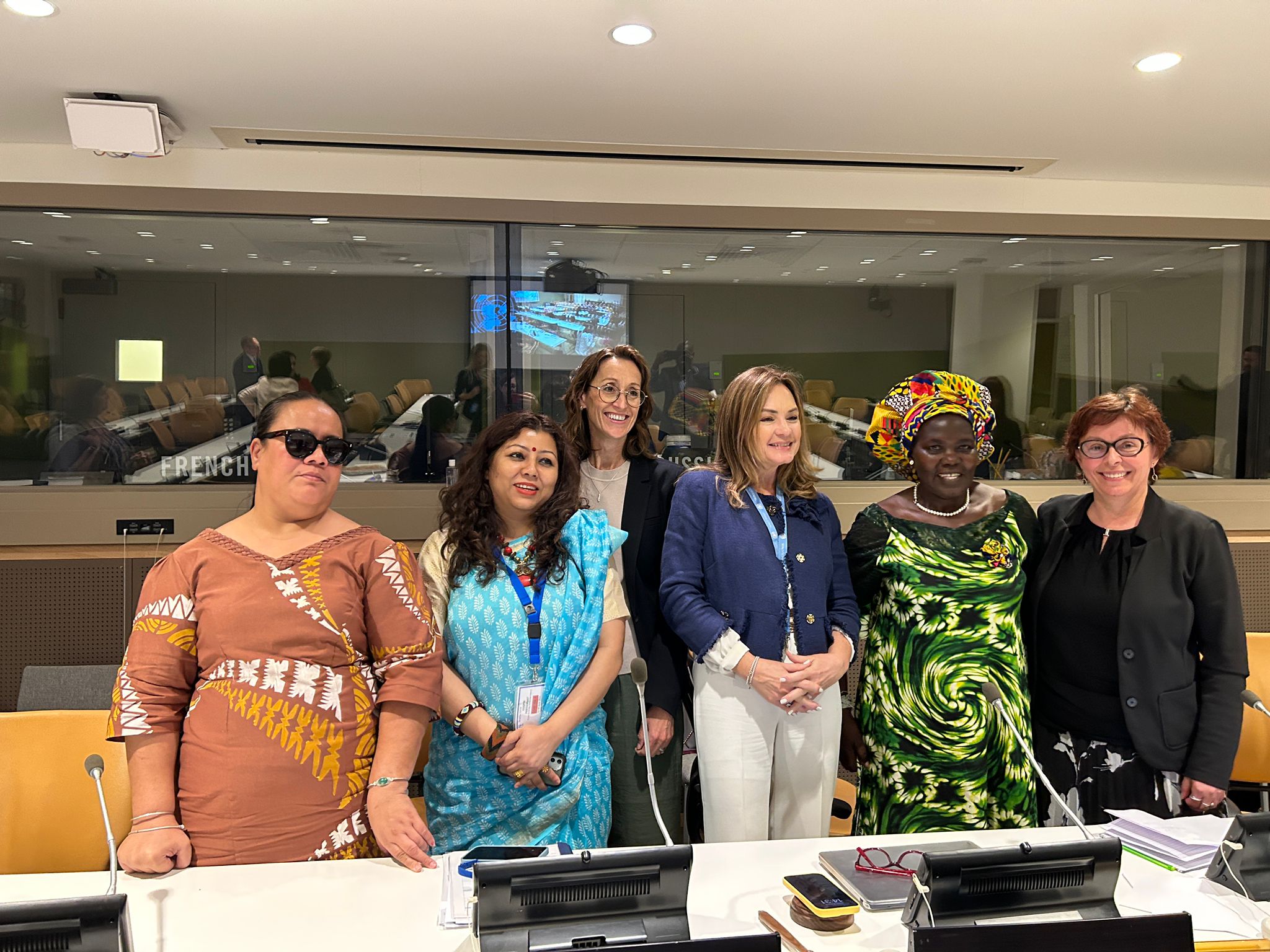
Finally, Sanja and IDA representatives met with the Permanent Representative of the Republic of Finland to the UN, to discuss the situation of persons with deafblindness in the country.
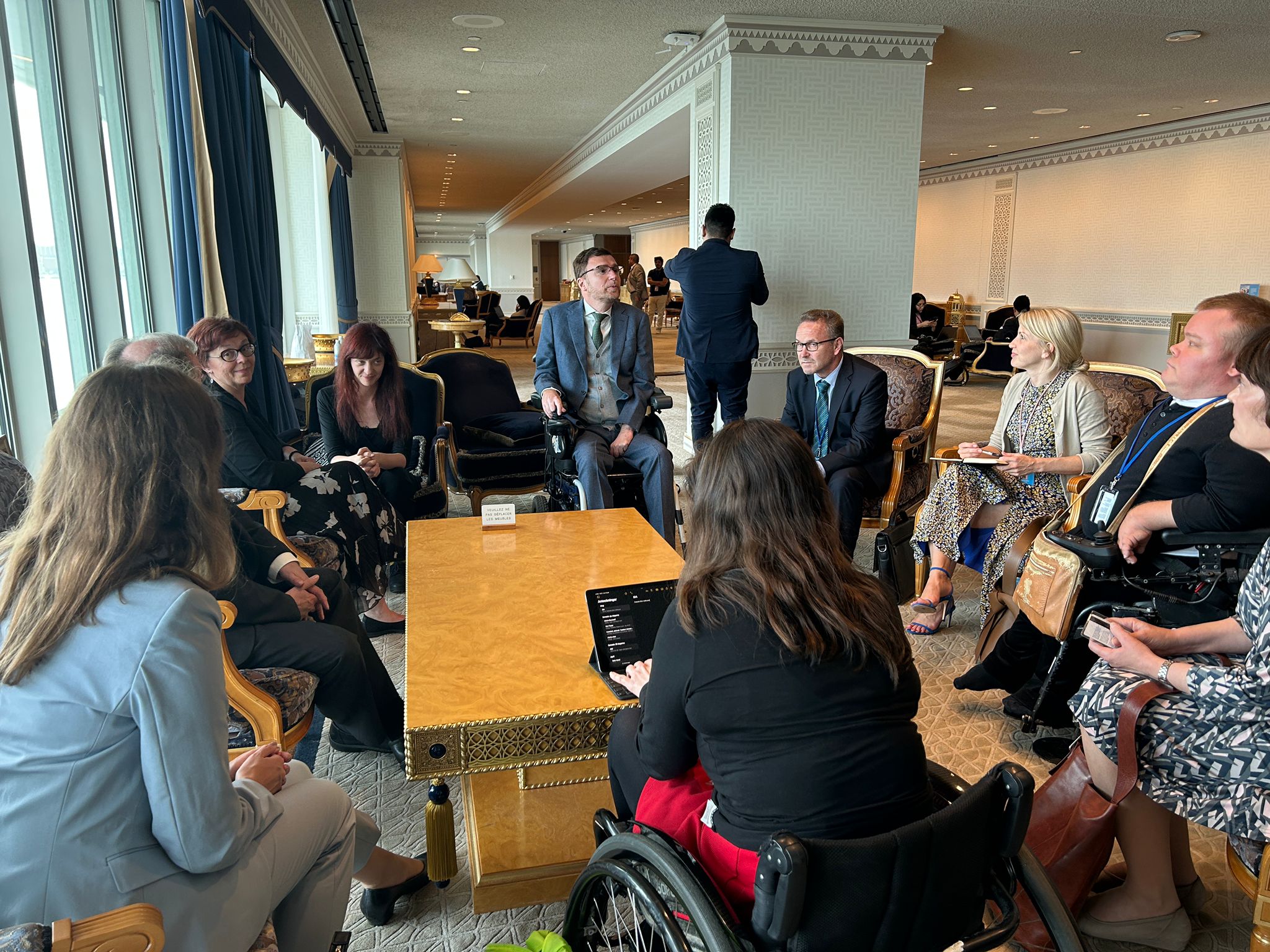
To conclude, WFDB’s participation to CoSP16 was fruitful and enriching. Our delegates will be following up directly with the different organisations and representatives, to ensure that the rights of persons with deafblindness are respected and advanced worldwide.
We would like to thank IDA for their support and collaboration for facilitating our delegates’ participation. Their efforts were inmense and recognised by WFDB. We also appreciate the work of our delegation, and thank them for their time and dedication in representing our organisation and the interests of the deafblind community.
